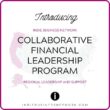Blogging has enhanced my life in many ways. A blog is an extremely versatile platform and can be used by small and independent business owners in many ways. I recently suggested that startups could use blogs as a business planning tool. As Tim Berry, author of The Plan-as-You-Go Business Plan (affiliate link), pointed out in my radio show interview, business planning is not something that happens once.
While it is an ongoing process, it does not require a big 3-ring binder and bunches of spread sheets and pie charts. Especially for new entrepreneurs, using a blog is an especially efficient way to plan a business. Here are some ideas to get you started.
Choose Your Blog Platform. You have several to choose from, the main ones being Blogger, WordPress, WordPress self-hosted and TypePad. I recommend a self-hosted WordPress platform because it has become the most efficient and effective way to maintain a branded blog, at least as technology stands right now. Unless things changes, learning how to use it efficiently before your business starts will put you ahead of the curve when you finally launch.
Self-hosted WordPress is free, but you may need to hire a blog designer to help you set up up. This startup expense is worth every penny. WordPress (not self-hosted) is a good second choice, as is Blogger, and both are free.
TypePad, the platform I started out with, is easy to use, but if you ever want to switch to self-hosted WordPress as I did, TypePad will not allow you to export any of your graphics and you will lose most of your tags. You can add them back manually, but that is a real inconvenience.
Whichever platform you choose, you can set the blog to private so on one can see it.
Add Blog Categories To Correspond To Your Plan. Use the “Categories” or “Labels” (if you use Blogger) feature at your blog to categorize your posts into the sections of your business plan. Once created, use them to organize your thoughts and save the things you learn. As you come across information you need to launch your business, cut and paste it into a blog post and save it in the appropriate plan section.
You can use the comments section for updates. For example, if you come across a great industry statistic for your “Competition” section, save it as a blog post in that section. Or if you discover a new email newsletter hosting service, prepare a post with the relevant information and links, and categorize it under the “Marketing” section of your plan. If you use WordPress, you could add a sub-category called, “email marketing,” under “Marketing,” for even greater efficiency. (You can see how sub-categories work in a WordPress blog by looking at “Topics” (my name for “Categories” in the upper left column of my blog.)
The United States Small Business Administration discusses the elements of a good business plan, with samples, at this link.
Update Your Plan Regularly. You can update your plan easily and quickly as needed. For example, you can add new email newsletter companies to the same blog post, or as a comment to the blog post (your choice, depending on how you are most comfortable organizing things), as you discover them. In this way, all the information you need to launch your business is always at your fingertips. Use key words in your post so you can quickly search for something when you need it. You can also delete or merge blog posts as your plan evolves.
Document The History Of Your Business. While you may wish to keep your planning blog private before you launch, one day, you may want to use it to show people how you started your business. You can link back to your old posts once your blog becomes public. This turns your blog into a business “history factory,” giving customers, the media and other stakeholders an interesting look at how your business got started. Add pictures, video and audio clips to make it fun and interesting. You'll never lose track of anything and some details that don't seem important now will be preserved for future use in a variety of different ways.
If you are consistent, your business planning blog could even turn into a book one day if you add your own unique commentary as you go. Everyone needs help with business planning and strategy, and what you will learn from blogging your business plan could eventually form the basis for a book proposal, especially if (no, when) your business becomes successful.
Question: If you are planning a new business, or planning to expand an existing one, what do you think of this idea? Would you consider it? Are you doing it already?



